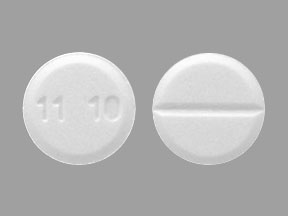Cyproheptadine Side Effects
Medically reviewed by Drugs.com. Last updated on Sep 10, 2024.
Applies to cyproheptadine: oral solution, oral tablets.
Side effects include:
Sedation, sleepiness (often transient), dizziness, disturbed coordination, restlessness, excitation.
For healthcare professionals
Applies to cyproheptadine: compounding powder, oral syrup, oral tablet.
General adverse events
The most commonly reported side effects included drowsiness and somnolence.[Ref]
Nervous system
- Common (1% to 10%): Drowsiness, somnolence
- Frequency not reported: Convulsions, coordination disturbance, dizziness, faintness, headache, neuritis, paresthesias, sedation/transient sedation, sleepiness/transient sleepiness, tremor, vertigo[Ref]
Some patients who developed drowsiness initially had an apparent improvement in symptoms when they continued taking this drug continuously over the next 3 to 4 days.[Ref]
Psychiatric
- Frequency not reported: Aggressive behavior, confusion, euphoria, excitation, hallucinations, hysteria, insomnia, irritability, nervousness, restlessness[Ref]
Gastrointestinal
- Frequency not reported: Constipation, diarrhea, dry mouth, epigastric distress, nausea, vomiting[Ref]
Genitourinary
- Frequency not reported: Difficult urination/micturition difficulty, early menses, micturition frequency/urinary frequency, urinary retention[Ref]
Respiratory
- Frequency not reported: Chest tightness, dry nose, dry throat, nasal stuffiness, thickened bronchial secretions, wheezing[Ref]
Hepatic
- Frequency not reported: Cholestasis, hepatitis, jaundice, liver failure, liver function abnormality[Ref]
Dermatologic
Cardiovascular
- Frequency not reported: Extrasystoles, hypotension, palpitation, tachycardia[Ref]
Hematologic
- Frequency not reported: Agranulocytosis, hemolytic anemia, leukopenia, thrombocytopenia[Ref]
Metabolic
Other
Hypersensitivity
- Frequency not reported: Allergic edema, anaphylactic shock[Ref]
Ocular
- Frequency not reported: Blurred vision, diplopia[Ref]
Immunologic
- Frequency not reported: Acute labyrinthitis[Ref]
See also:
References
1. (2002) "Product Information. Periactin (cyproheptadine)." Merck & Co., Inc
2. Cerner Multum, Inc. "UK Summary of Product Characteristics."
Frequently asked questions
More about cyproheptadine
- Check interactions
- Compare alternatives
- Pricing & coupons
- Reviews (213)
- Drug images
- Dosage information
- During pregnancy
- Support group
- Drug class: antihistamines
- Breastfeeding
- En español
Patient resources
Professional resources
- Cyproheptadine Hydrochloride monograph
- Cyproheptadine (FDA)
- Cyproheptadine Solution (FDA)
- Cyproheptadine Syrup (FDA)
Related treatment guides
Further information
Cyproheptadine side effects can vary depending on the individual. Always consult your healthcare provider to ensure the information displayed on this page applies to your personal circumstances.
Note: Medication side effects may be underreported. If you are experiencing side effects that are not listed, submit a report to the FDA by following this guide.

